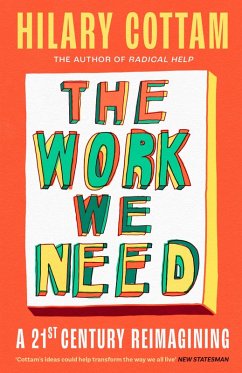
Disintegrating Democracy at Work (eBook, ePUB)
Labor Unions and the Future of Good Jobs in the Service Economy
Versandkostenfrei!
Sofort per Download lieferbar
18,95 €
inkl. MwSt.
Weitere Ausgaben:

PAYBACK Punkte
9 °P sammeln!
The shift from manufacturing- to service-based economies has often been accompanied by the expansion of low-wage and insecure employment. Many consider the effects of this shift inevitable. In Disintegrating Democracy at Work, Virginia Doellgast contends that high pay and good working conditions are possible even for marginal service jobs. This outcome, however, depends on strong unions and encompassing collective bargaining institutions, which are necessary to give workers a voice in the decisions that affect the design of their jobs and the distribution of productivity gains.Doellgast's conc...
The shift from manufacturing- to service-based economies has often been accompanied by the expansion of low-wage and insecure employment. Many consider the effects of this shift inevitable. In Disintegrating Democracy at Work, Virginia Doellgast contends that high pay and good working conditions are possible even for marginal service jobs. This outcome, however, depends on strong unions and encompassing collective bargaining institutions, which are necessary to give workers a voice in the decisions that affect the design of their jobs and the distribution of productivity gains.
Doellgast's conclusions are based on a comparative study of the changes that occurred in the organization of call center jobs in the United States and Germany following the liberalization of telecommunications markets. Based on survey data and interviews with workers, managers, and union representatives, she found that German managers more often took the "high road" than those in the United States, investing in skills and giving employees more control over their work. Doellgast traces the difference to stronger institutional supports for workplace democracy in Germany. However, these democratic structures were increasingly precarious, as managers in both countries used outsourcing strategies to move jobs to workplaces with lower pay and weaker or no union representation. Doellgast's comparative findings show the importance of policy choices in closing off these escape routes, promoting broad access to good jobs in expanding service industries.
Doellgast's conclusions are based on a comparative study of the changes that occurred in the organization of call center jobs in the United States and Germany following the liberalization of telecommunications markets. Based on survey data and interviews with workers, managers, and union representatives, she found that German managers more often took the "high road" than those in the United States, investing in skills and giving employees more control over their work. Doellgast traces the difference to stronger institutional supports for workplace democracy in Germany. However, these democratic structures were increasingly precarious, as managers in both countries used outsourcing strategies to move jobs to workplaces with lower pay and weaker or no union representation. Doellgast's comparative findings show the importance of policy choices in closing off these escape routes, promoting broad access to good jobs in expanding service industries.
Dieser Download kann aus rechtlichen Gründen nur mit Rechnungsadresse in A, D ausgeliefert werden.













